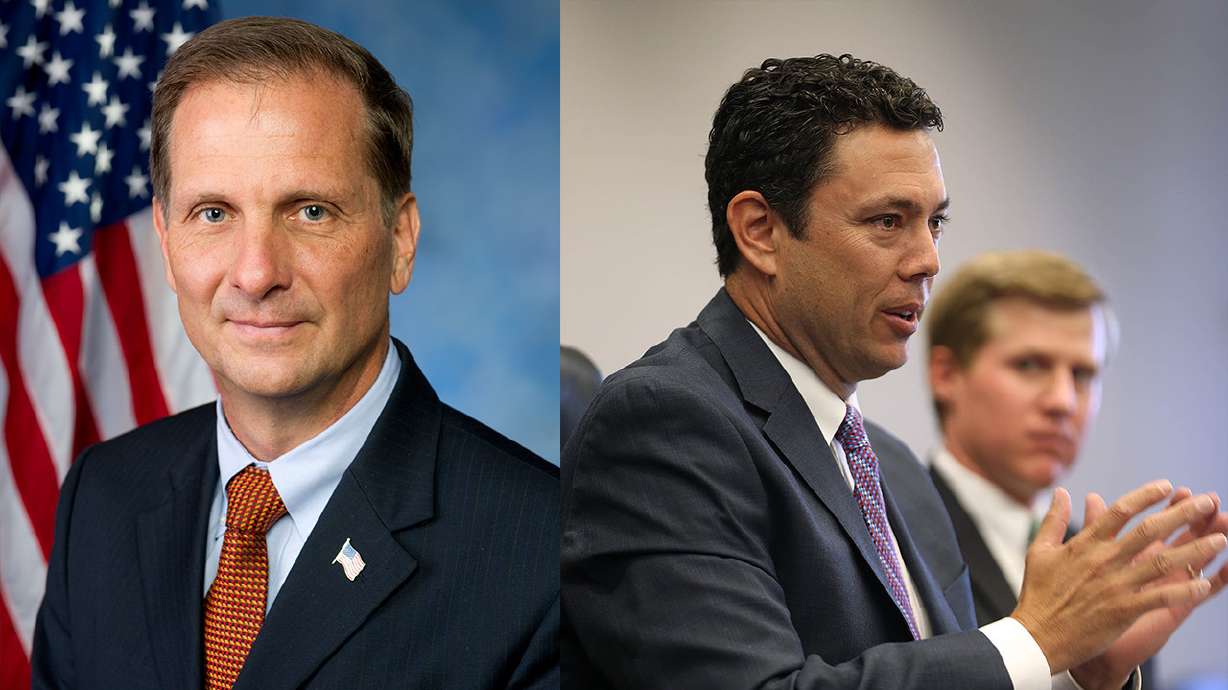Estimated read time: 3-4 minutes
This archived news story is available only for your personal, non-commercial use. Information in the story may be outdated or superseded by additional information. Reading or replaying the story in its archived form does not constitute a republication of the story.
SALT LAKE CITY — Two Utah congressmen want answers from the National Security Administration about reports that it monitored private exchanges between members of Congress and Israeli government leaders.
Citing a Wall Street Journal story, Rep. Jason Chaffetz, R-Utah, sent a letter as chairman of the House Oversight Committee this week to NSA Director Michael Rogers seeking information and briefings on the matter.
"These reports raise questions concerning the processes NSA employees follow in determining whether intercepted communications involved members of Congress, and the latitude agency employees have in screening communications with members of Congress for further dissemination within the executive branch," Chaffetz wrote.
Rep. Chris Stewart, R-Utah, a member of the House Intelligence Committee, said if the news reports are true, "we've got a real problem."
"The National Security Agency already has a strained relationship with the American people, and breaking our privacy laws only weakens that relationship," Stewart said.
"It comes back to this idea of can we trust the administration when they say that they're not going to do something that they're actually not, especially when it comes to constitutional rights," he said.
The House Intelligence Committee intends to launch an investigation next week.
President Barack Obama announced two years ago that he would no longer eavesdrop on friendly heads of state. Any intercepted communication between a U.S. government official and a foreign target must be destroyed unless the NSA director grants a waiver, and Congress isn't aware of any such waiver, Stewart said.
Despite the announcement, the White House decided behind the scenes to keep certain allies under close watch, according to the Wall Street Journal. Topping the list was Israeli Prime Minister Benjamin Netanyahu.
The Journal reported that the NSA "swept up the contents" of private conversations between Netanyahu and members of Congress during the Iran nuclear weapons deal negotiations. The Israeli prime minister steadfastly opposed the accord and tried to derail it with a speech to Congress.
The White House lets the NSA decide what portions of those intercepted communications to share with the Obama administration and what to withhold, according to the Journal.
Stewart said he wants to know why the White House chose to keep tabs on Israel when it has said it's not monitoring other U.S. allies such as France, Germany and NATO leaders.
"Apparently, they don't put Israel in that same type of protected category. I don't understand that at all. They're clearly one of our closest allies, not even in the region but throughout the entire world," he said.
Stewart attributed it to the White House being "suspicious" that Israel was working against the Iran nuclear deal.
Chaffetz asked the NSA to provide copies of all the formal and informal policies about the process it follows to determine whether it has intercepted communications involving members of Congress and how it screens them for distribution to other government officials.
The congressman asked for the documents by Jan. 13 and for the NSA to brief the Oversight Committee staff by Jan. 15.









